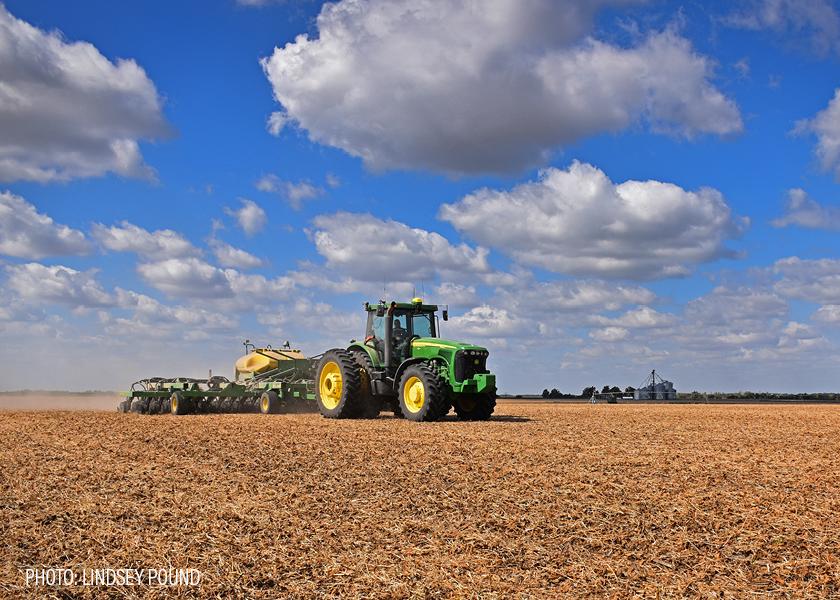Can You Now Repair Your Own John Deere Equipment?

The “right to repair” issue has been a topic of debate both in and outside of agriculture. A memorandum of understanding signed by Deere & Co and the American Farm Bureau Federation (AFBF) means farmers will be able to repair their own equipment.
The MOU was announced during AFBF’s annual meeting in Puerto Rico on Sunday. According to both Deere and AFBF, the MOU formalizes the availability and access to parts, tool, software and documentation to perform repair and maintenance.
“This will enable you and your independent mechanics to identify and fix problems," Farm Bureau president Zippy Duvall said during his AFBF address. "You will have access to the diagnostic tools and information you need. And you'll get it at a fair and reasonable price.”
"The says the agreement with the American Farm Bureau Federation formalizes the longstanding commitment Deere has made to ensure our customers have the diagnostic tools and information they need to repair their machines," Deere stated. "We look forward to working alongside the American Farm Bureau and our customers in the months and years ahead to ensure farmers continue to have the tools and resources they need to diagnose, maintain and repair their equipment."
With the MOU, farmers can either repair equipment on their own or go to an independent technician. It also helps dodge legislation around the issue. Several states had introduced their own “right to repair” legislation, but as stated in the MOU released this week, the agreement will happen “through a voluntary private sector commitment to outcomes rather than legislative or regulatory measures.”
The Association of Equipment Manufacturers (AEM) represents agriculture equipment manufacturers. The association says it welcomes the MOU between Deere and AFBF and supports their goal of having issues like "right to repair" resolved without legislation.
"The Association of Equipment Manufacturers and its member companies have always supported a farmer’s right to safely maintain, diagnose, and repair equipment," says Curt Blades, senior vice president of AEM. "We remain committed to helping farmers reduce downtime and maximize productivity through solutions that keep them safe and protect our environment. The success of the agriculture industry is also the success of the equipment manufacturing industry, and we welcome every opportunity to work together to secure the future of American agriculture. The agreement between Deere & Co. and the American Farm Bureau Federation is a positive step in resolving a long-standing issue and reinforces our belief that successful resolution does not require onerous legislative action."
The Complicated Issue of "Right to Repair"
The issue of “right to repair” is one the entire industry has faced, but John Deere is the equipment manufacturer who is typically the target of both news coverage and policies introduced. As one equipment industry source stated, John Deere is the company with the most to lose.
"Right to repair" is a complicated issue with no easy solution. The latest models of equipment come with sophisticated and high-tech combinations of hardware and software. While the technology allows farmers to be even more precise, one of the downsides is it can be more prone to breakdowns or issues than older models without technology. This can cause more downtime during critical times of the year, such as planting and harvest.
At the same time, protecting the software and intellectual property is of high importance, especially with the rise in cyberattacks in agriculture. If an agricultural company hasn't built the proper cloud-based or offline systems, then it puts farmers- and the entire agriculture industry- at risk.
The MOU is aimed to protect the software, while also aiding farmers' efforts to repair their own equipment as quickly - and efficiently - as possible.
MOU Protects Safety or Protocols
The MOU states equipment owners and independent technicians cannot compromise any safety measures and protocols on the equipment, which includes Deere's intellectual property, including its software, are protected from infringement; and no federal and state emissions control requirements can be compromised because of modifications made to the machinery.
The MOU also states this access will not be allowed for the purpose of overriding safety features or emissions criteria.
“This MOU shall not be interpreted or construed to require a Manufacturer to: a) divulge trade secrets, proprietary or confidential information; b) allow owners or Independent Repair Facilities to override safety features or emissions controls or to adjust Agricultural Equipment power levels; or, c) violate any federal, state, or local laws or regulations,” states the MOU.
Will More Equipment Manufacturers Sign On?
While the initial MOU is just with John Deere, Duvall invited other equipment manufacturers to also sign on. He also said Farm Bureau officials will meet at least semi-annually with John Deere to discuss the “right to repair.”
“This is a positive step in the right direction. NAEDA will be working to learn more about how the MOU will affect dealers and state legislation going forward and will continue to keep dealers informed,” says Kim Rominger, CEO of the North American Equipment Dealers Association (NAEDA).
Read the complete MOU here.







